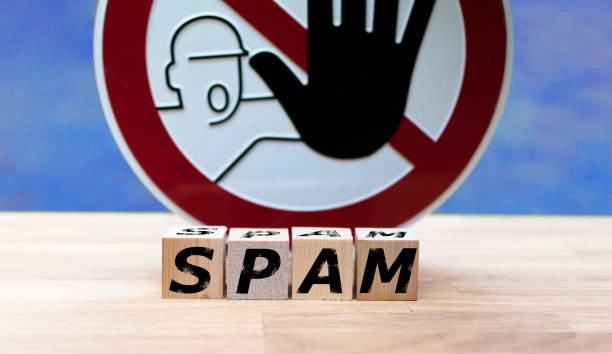Why SSDI Claims Get Denied & How to Avoid Rejection

Why SSDI Claims Get Denied & How to Avoid Rejection
Applying for Social Security Disability Insurance (SSDI) can be a frustrating process, especially when claims get denied. Many applicants in Houston, Texas, and across the U.S. face rejections due to insufficient medical evidence, exceeding income limits, or procedural errors. The Social Security Administration (SSA) follows strict guidelines to determine eligibility, and even minor mistakes can result in a denial.
This guide will explore the most common reasons SSDI claims are denied, steps to avoid rejection, and how applicants can strengthen their cases.
1. Insufficient Medical Evidence
Medical records play a crucial role in proving a disability claim. The SSA requires substantial proof that an applicant’s condition prevents them from working. If medical evidence is incomplete or inconsistent, the claim may be denied.
How to Strengthen Your Medical Evidence
- Submit detailed medical reports from doctors, including test results, imaging scans, and treatment records.
- Ensure the doctor clearly states how the condition affects daily activities and work capability.
- Keep records of prescribed treatments and any side effects that prevent work.
- If SSA requests additional medical examinations, attend all scheduled appointments.
In Houston, many claims get denied simply because the medical evidence does not sufficiently demonstrate the severity of the disability. Working closely with doctors to obtain comprehensive records can significantly improve approval chances.
2. Earning Above the Allowed Limit
SSDI is designed for individuals who are unable to engage in substantial gainful activity (SGA) due to their disability. If an applicant earns above the SSA’s threshold, their claim may be denied.

Ways to Avoid Income-Related Denials
- Stay updated on the current SGA limit set by the SSA.
- Maintain accurate work and income records to avoid discrepancies.
- If working part-time, ensure it aligns with SSA’s disability criteria.
- Consider exploring Supplemental Security Income (SSI) if SSDI eligibility is in question.
For individuals struggling with debt while waiting for SSDI approval, it’s essential to understand financial options. Check out our guide on Debt Settlement vs. Bankruptcy to make an informed decision.
3. Failure to Follow Prescribed Treatment
The SSA expects applicants to follow the treatments recommended by their doctors. If an applicant does not comply with medical treatment, their claim may be denied under the assumption that they could recover and return to work.
Valid Reasons for Not Following Treatment
- Financial constraints prevent access to necessary medical care.
- The treatment has severe side effects that worsen the condition.
- Religious beliefs prohibit certain medical procedures.
- Doctors recommend an alternative approach to managing the condition.
If treatment adherence is an issue, applicants should document reasons for non-compliance and inform the SSA accordingly.
4. Not Having Enough Work Credits
To qualify for SSDI, applicants must have earned enough work credits through employment covered by Social Security. The number of required credits depends on the applicant’s age and work history.
How to Check Work Credit Status
- Review Social Security statements to verify work credit accumulation.
- If credits are insufficient, explore Supplemental Security Income (SSI) as an alternative.
- Consider whether past employment history may qualify under special rules for certain disabilities.
Individuals in Houston, Texas, who lack work credits may need to explore other disability benefits or legal assistance to assess their options.
5. Errors in the SSDI Application
Small errors in the application process can lead to automatic denials. Common mistakes include:
- Incomplete forms or missing documents.
- Incorrect personal information, such as name, address, or Social Security number.
- Failing to respond to SSA requests for additional details.

How to Ensure an Accurate Application
- Double-check all forms before submission.
- Keep copies of medical records, work history, and financial documents.
- Seek assistance from a disability attorney or legal expert for a thorough review.
A well-prepared application reduces the chances of rejection and speeds up the approval process.
6. Drug or Alcohol Use Affecting the Disability
If the SSA determines that drug or alcohol use is a contributing factor to an applicant’s condition, the claim may be denied. However, a history of substance abuse does not automatically disqualify an applicant.
How to Strengthen the Case
- Provide medical evidence showing that the disability exists independently of substance use.
- Enroll in a treatment program if there is a history of substance abuse.
- Obtain a doctor’s statement confirming that substance use does not impact the disability.
7. The Disability is Not Severe Enough
To qualify for SSDI, the SSA must determine that the applicant’s condition is severe enough to prevent them from working for at least 12 months. If the condition is expected to improve within a short period, the claim may be denied.
Ways to Prove the Severity of a Disability
- Submit updated medical reports showing the long-term impact of the condition.
- Obtain statements from doctors explaining how the disability affects daily life.
- Keep a symptom diary to document pain levels, physical limitations, and treatment effects.
8. The Disability is Linked to Criminal Activity
Applicants who were injured while committing a felony or those who are currently incarcerated may face SSDI denial. However, some exceptions apply.
Situations Where SSDI May Still Be Approved
- If the disability existed before incarceration, the claim may be reconsidered.
- Certain work-related injuries may qualify for benefits after release.
Internal and External Resources
Understanding financial stability during the SSDI waiting period is crucial. If you’re considering legal options, check out our guide on Debt Settlement vs. Bankruptcy to determine which option is right for you.
For official guidelines on SSDI eligibility and appeals, refer to U.S. Courts for legal insights.
FAQs
1. What should I do if my SSDI claim is denied?
File an appeal within 60 days of receiving the denial notice. The reconsideration process allows applicants to submit additional evidence.
2. How long does it take for SSDI approval?
SSDI claims typically take three to five months to make an initial decision. The process can take several months or even years if an appeal is required.
3. Can I work while receiving SSDI benefits?
Yes, but earnings must stay below the SGA limit to remain eligible. The SSA also offers trial work periods, allowing recipients to test their ability to work.
4. Does SSDI cover mental health conditions?
Yes, SSDI covers mental health disorders if they prevent an individual from working. Proper medical documentation is essential to prove the severity of the condition.
5. Is hiring a lawyer beneficial for SSDI claims?
A disability lawyer can help ensure all necessary documents are submitted, represent applicants during appeals, and improve approval chances.
Conclusion
Many SSDI claims are denied due to insufficient medical evidence, exceeding income limits, or procedural errors. Applicants in Houston, Texas, and other locations should ensure their applications are accurate, well-documented, and legally sound.
By avoiding common mistakes and seeking professional guidance when needed, applicants can increase their chances of approval. If financial hardship is an issue while awaiting SSDI, check out Debt Settlement vs. Bankruptcy for financial assistance options.
For official SSDI eligibility guidelines, refer to U.S. Courts.


